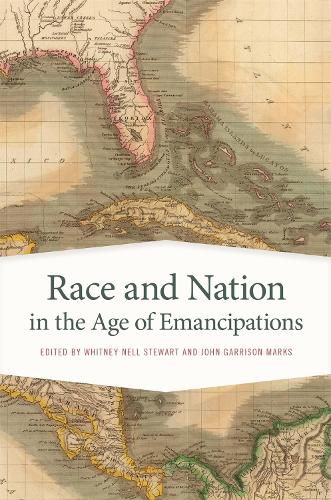Readings Newsletter
Become a Readings Member to make your shopping experience even easier.
Sign in or sign up for free!
You’re not far away from qualifying for FREE standard shipping within Australia
You’ve qualified for FREE standard shipping within Australia
The cart is loading…






Over the long nineteenth century, African-descended peoples used the uncertainties and possibilities of emancipation to stake claims to freedom, equality, and citizenship. In the process, people of color transformed the contours of communities, nations, and the Atlantic world. Although emancipation was an Atlantic event, it has been studied most often in geographically isolated ways. The justification for such local investigations rests in the notion that imperial and national contexts are essential to understanding slaving regimes. Just as the experience of slavery differed throughout the Atlantic world, so too did the experience of emancipation, as enslaved people’s paths to freedom varied depending on time and place.
With the essays in this volume, historians contend that emancipation was not something that simply happened to enslaved peoples but rather something in which they actively participated. By viewing local experiences through an Atlantic framework, the contributors reveal how emancipation was both a shared experience across national lines and one shaped by the particularities of a specific nation. Their examination uncovers, in detail, the various techniques employed by people of African descent across the Atlantic world, allowing a broader picture of their paths to freedom.
$9.00 standard shipping within Australia
FREE standard shipping within Australia for orders over $100.00
Express & International shipping calculated at checkout
Over the long nineteenth century, African-descended peoples used the uncertainties and possibilities of emancipation to stake claims to freedom, equality, and citizenship. In the process, people of color transformed the contours of communities, nations, and the Atlantic world. Although emancipation was an Atlantic event, it has been studied most often in geographically isolated ways. The justification for such local investigations rests in the notion that imperial and national contexts are essential to understanding slaving regimes. Just as the experience of slavery differed throughout the Atlantic world, so too did the experience of emancipation, as enslaved people’s paths to freedom varied depending on time and place.
With the essays in this volume, historians contend that emancipation was not something that simply happened to enslaved peoples but rather something in which they actively participated. By viewing local experiences through an Atlantic framework, the contributors reveal how emancipation was both a shared experience across national lines and one shaped by the particularities of a specific nation. Their examination uncovers, in detail, the various techniques employed by people of African descent across the Atlantic world, allowing a broader picture of their paths to freedom.